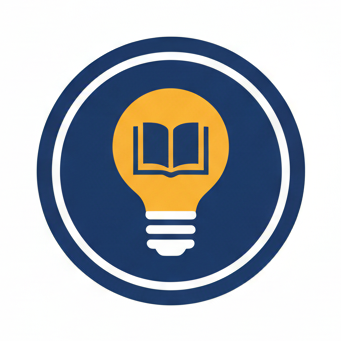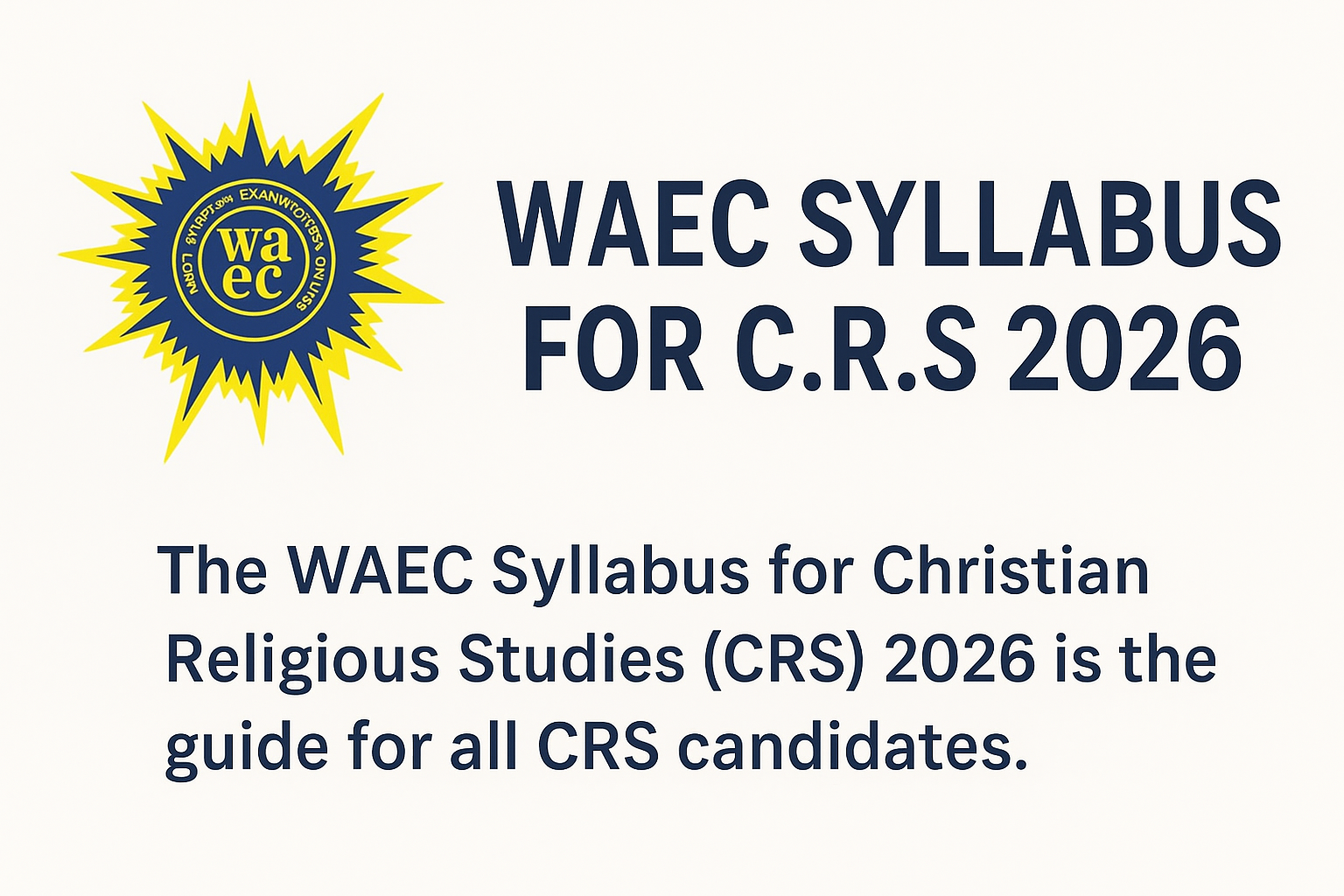If you are preparing for the WAEC Christian Religious Studies (CRS) exam in 2026, then this syllabus is one of the most important tools you need. It tells you exactly what WAEC wants you to study, the Bible passages questions will come from, and the themes you must understand to score high.
Many students read the Bible randomly and end up confused, but using the WAEC CRS syllabus helps you stay on track.
Why the WAEC CRS Syllabus 2026 Matters
Think of the syllabus as a map. It shows the direction you should follow during your preparation. With this syllabus, you can:
- Focus on the exact Bible stories WAEC will test
- Organize your reading without stress
- Understand key lessons behind each passage
- Build confidence before the exam
- Improve your chances of getting an A1
If you want to pass CRS, this syllabus should be your best companion.
WAEC CRS Syllabus 2026
The CRS syllabus is divided into three major sections, and each one focuses on important parts of the Bible:
- The Old Testament
- The Life and Teachings of Jesus Christ
- The Early Church and Christian Living
Let’s break them down one by one in a simple, clear way.
SECTION A: The Old Testament
1. Creation, the Fall of Man, and God’s Covenant
In this part, WAEC wants you to understand the beginning of humanity and God’s relationship with His people. You will study:
- How God created the world (Genesis 1–2)
- The fall of man and its consequences (Genesis 3)
- The story of Noah and God’s promise after the flood
- God’s covenant with Abraham and why he is called “Father of Faith”
2. Leaders God Used in Israel
You will learn about strong leaders in the Bible and how God used them:
- The call of Moses and his mission in Egypt
- The Passover and Israel’s deliverance
- The Ten Commandments
- Leadership qualities of Moses and Joshua
3. Judges and Kings of Israel
Here you will explore the period of the Judges and the kings who ruled Israel:
- Deborah, Gideon, Samson and their roles
- How Saul became the first king
- David’s rise, his challenges, his sins, and his repentance
- Solomon’s wisdom and achievements
4. The Prophets and Their Messages
God used prophets to correct, warn, and guide Israel. You’ll study:
- Elijah and the prophets of Baal
- Isaiah’s message of hope
- Jeremiah’s warnings
- Amos and his fight against injustice
- Hosea’s message of love and repentance
SECTION B: The Life & Ministry of Jesus Christ
1. The Birth and Early Years of Jesus
This part covers:
- Prophecies about His birth
- The birth of Jesus
- His presentation in the temple
- His baptism and temptation
2. Teachings of Jesus
This topic helps you understand His message to the world:
- The Beatitudes
- The Golden Rule
- Important parables like the Good Samaritan, Prodigal Son, and Lost Sheep
- The meaning of faith, love, humility, and forgiveness
3. Miracles of Jesus
You’ll learn the purpose of His miracles and how they proved His power:
- Healing the sick
- Feeding the 5,000
- Calming the storm
- Raising the dead (Lazarus, Jairus’ daughter)
4. His Death and Resurrection
This part explains the core of Christianity:
- The Last Supper
- His betrayal and crucifixion
- His burial and resurrection
- The importance of the resurrection to Christians today
- Jesus’ final instructions (The Great Commission)
SECTION C: The Early Church & Christian Living
1. Growth of the Early Church
This section takes you through how Christianity spread:
- The coming of the Holy Spirit at Pentecost
- Peter’s sermon and early conversions
- The challenges the early Christians faced
- Paul’s conversion and missionary journeys
- The Council of Jerusalem
2. Christian Living and Practical Faith
WAEC also wants you to understand how Christians should behave:
- Living a life of love, faith, honesty, and purity
- Christian attitude to work and leadership
- Handling temptation and persecution
- Responsibilities at home, school, and community
- Proper Christian attitude to wealth, poverty, and giving


Leave a Reply